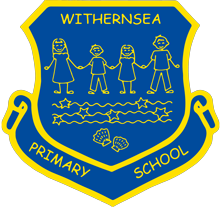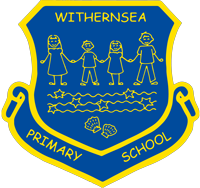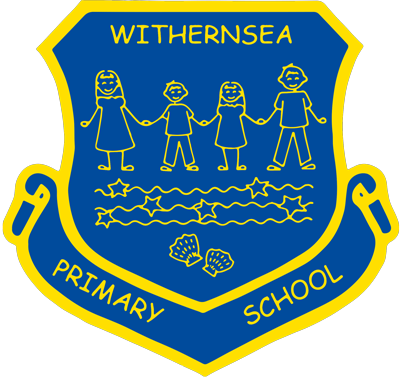Welcome to EYFS
Our foundation stage here at Withernsea Primary School welcomes both F1 nursery children and F2 reception children.
We aim to provide a board and balanced curriculum which enables each child to develop personally, emotionally, physically, creatively and intellectually to their individual full potential.
We provide a fun, exciting and stimulating environment in which your child can grow and learn safely. Our curriculum is based on your child’s interests and led by staff observations which ensure children have the opportunities for purposeful play both indoors and outdoors which lead them on their next steps in learning. All members of staff take time to observe the children to establish where the children are in their learning and move them forward through effective questioning and modelling play alongside the children. Individual progress is reflected in their online Tapestry Journeys, to which parents are welcome to contribute to.
EYFS Statutory Framework
We follow the Statutory Framework from the Department for Education with the Early Years Foundation Stage framework.
There are seven areas of learning and development that must shape educational programmes in early years settings.
All areas of learning and development are important and inter-connected.
The seven areas of learning:
- Communication and Language: Building children’s spoken language through back-and-forth interactions and language-rich environments, incorporating reading, active engagement, and extensive vocabulary use.
- Personal, Social, and Emotional Development: Fostering strong relationships, supporting emotional management, promoting a positive sense of self, setting goals, and developing social skills to create a secure foundation for cognitive development.
- Physical Development: Encouraging physical activity and motor skill development through play, both indoors and outdoors, to enhance core strength, coordination, balance, and fine motor control.
- Literacy: Promoting a love of reading, nurturing language comprehension, word reading, writing skills, and the joy of books, rhymes, poems, and songs.
- Mathematics: Building a strong foundation in number sense, counting, patterns, and spatial reasoning skills, fostering positive attitudes and problem-solving abilities.
- Understanding the World: Helping children make sense of their physical world and community through personal experiences, exposure to diverse stories, non-fiction, and cultural understanding.
- Expressive Arts and Design: Encouraging artistic and cultural awareness, imagination, and creativity through regular engagement with a wide range of materials, experiences, and the arts.
These areas of learning and development contribute to children’s holistic growth, supporting their cognitive, social, emotional, and physical well-being.
Areas within our Nursery and Reception classrooms:
- A writing area containing various writing implements and papers as well as envelopes and examples of good writing
- Multiple reading areas containing a range of fiction, non-fiction, poetry and class-made books
- A maths resource area which allows children to select appropriate items to help them solve practical problems
- A creative area containing resources for a range of art and design medias
- A construction area containing resources for developing fine motor skills, social interaction and problem solving
- A small world area which allows children to extend fine motor skills, engage in imaginative play and develop language
- An area for sand, malleable materials (e.g. play dough) and water play, where children can engage in practical investigations
- A role play area which can be developed along themed line to cover several aspects of learning in “real life” scenarios.
- Music baskets filled with a range of instruments for the children to use and explore
Development & Assessment
The outside area is seen as an extension of the classroom and the above opportunities will be available outside as well as inside.
Through all of our strands we aim to develop the children as they Play and Explore, be an Active Learner and to have Creative and Critical Thinking.
The staff are constantly assessing the children in their everyday activities, play and through more focused work. We use observations of the children, photos, the work that they do, feedback from parents and comments made by the children, as well as Tapestry to identify where your child is currently working at.
This is based on the Development Matters document which gives statements for the ages of the children. We share this with parents and base the next steps for the children on this. There are opportunities to discuss your child’s progress at parent evenings as well as making additional time to discuss as and when needed. Please sign up to Class Dojo so that you’re able to view your child’s portfolio and communicate with the class teacher.
Although we have focus topics throughout the year, we ensure that planning is an active and evolving process based on the children’s interests, their individual next steps and findings from the previous week.
Communication and Language
A key focus for our children is giving them time to communicate as a whole class, we sit down with the children at the start of the day and give them time to talk about how they are feeling and what they are going to do during the day as well as what they have done outside of school. This enables staff to get the children talking to each other and to the group, and find out about their interests.
F1 and F2 children have home school diaries which are sent home every Friday. These home school diaries give parents and carers an overview of the children’s learning experience that week. We encourage you to share this with your child at home and to add your own comments/pictures to the diary which can be shared in class.
Reading
In F1 and F2 children will have the opportunity to take home a library book that will be changed weekly. Foundation 2 children will also have an individual reading book or ditty sheet and a reading record for parents to support and enjoy their reading at home. Both F1 and F2 children are taught Phonics through the Read Write Inc programme.
Information for parents
‘I love school, its a good place to learn’…
Pupils are making good progress in improving their reading, writing and mathematical skills. Pupils’ progress in key stage 1 is particularly strong. Pupils are developing a range of exciting vocabulary in their writing. Pupils’ handwriting and spelling are weaker.
‘I love school, its amazing, its like a second home’
‘its really fun, it makes learning fun’
‘I would like to say thank you to everyone at Withernsea Primary School for everything you have done…..you have all been amazing’
‘Leaders, including governors, understand the strengths and weaknesses of the school’s work.
They take decisive action to secure improvement. Consequently, the gaps in the progress made by different groups of pupils are diminishing.’
‘Teaching is improving. Teachers are successful in keeping pupils on task. They offer pupils activities which catch their imagination and motivate them to do well.’
‘the teachers explain really well’
‘Pupils who are experiencing significant turbulence in their lives are well supported. As a result, they stay engaged in their learning.’
‘thank you for keeping me safe’
‘ I would just like to say what a great help all the teachers and staff at Withernsea Primary School have been to parents/grandparents and carers during these very strange last months. Thank you’
‘Pupils behave well in the classroom and around the school. Teachers support pupils with
identified behaviour difficulties well.’
‘Most-able pupils and those who have special educational needs (SEN) and/or disabilities generally make good progress because teachers match tasks carefully to their needs.’
‘I love school’ …
‘The curriculum supports pupils in developing positive attitudes to learning. Leaders have linked activities closely to pupils’ interests and aspirations. This has been particularly successful in engaging boys.’
‘You have all been amazing. I hope all you teachers are proud of yourselves for the way you have conducted things throughout this pandemic. Proud to say my children are students at Withernsea Primary School’
‘Leaders have made significant improvements to early years provision. As a result, children
are making a strong start in building their skills in reading, writing and mathematics.’



